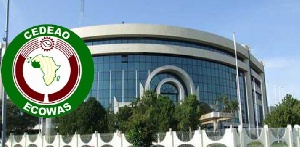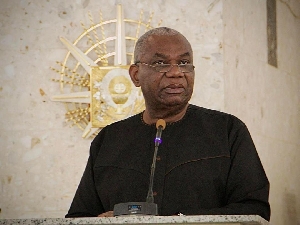The country is expected to start implementing the Common External Tariffs (CET) regime by July 2, 2015, following approval by Cabinet and imminent passage of the bill by Parliament.
B&FT sources at the Ghana Revenue Authority (GRA) said: “We will start implementing the CET by July 2. Cabinet has already approved it and we are waiting for Parliament to pass it”. Ghana’s Parliament is currently on recess and expected to resume sometime in May.
An impact assessment of implementing the Ecowas CET conducted by the Ministry of Finance (MoF) indicates that total revenue gain from implementing CET in 2015 is projected at GH?986million. The additional revenue to government as a result of implementing the CET is estimated to be 1.4% of the total value of commodity imports in 2013.
The report forecasts total imports to be GH¢48.99bn in 2015, with estimated revenue gain of GH¢686million. This signifies over 3% of tax revenue increase.
However, the delay in passing the CET bill will mean the revenue target from implementing the CET may fall short this year. The 15-member Economic Community of West African States (ECOWAS) was expected to start implementing a Common External Tariffs (CET) regime starting January 1, this year. However, Ghana was unable to start implementing the CET on January 1, 2015 because it is yet to receive Parliamentary approval -- though some countries within the sub-region have started its implementation. The CET initiative forms part of measures to create a Customs union in the sub-region. The coming into force of the ECOWAS CET means that member-countries will be collecting the same tariff at their border points for all imports from non-ECOWAS member-states
Finance Minister Seth Terkper, in the 2015 Budget, noted that implementation of the CET “Will help address the problem of cross-border smuggling, combat dumping and also bring economic benefits to people of the sub-region”.
Among key benefits of implementing the ECOWAS CET are consolidation of the regional market and reduced trade deflection resulting from tariffs harmonisation.
It is also useful in levelling the competitive playing field and addressing the problem of re-exports -- using preferential tariffs in one country to enter another country.
Customs unions represent the second stage in the drive toward integration of the sub-region. It follows the completion of negotiations and deliberations at the technical level of theECOWAS Common External Tariff (CET) in 2012. All West African States are expected to adopt the new Regional Common External Tariffs by January, 2015.
Implementation of the ECOWAS CET has a five-year window for conformity. Within this period, member-states are allowed to maintain certain exemptions currently in place. Other issues to be addressed within this period are the full Harmonisation Community Customs Procedure Code; exemption regimes harmonisation; and free circulation.
Business News of Wednesday, 1 April 2015
Source: B&FT

















